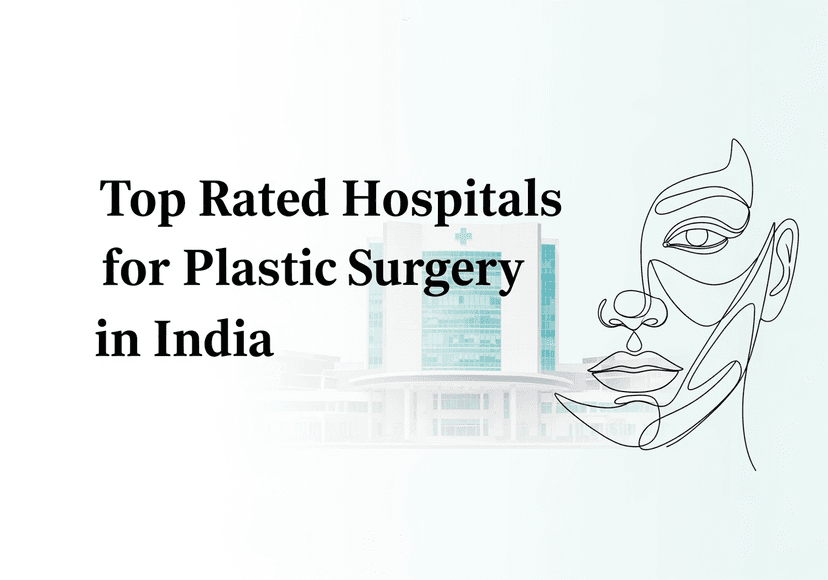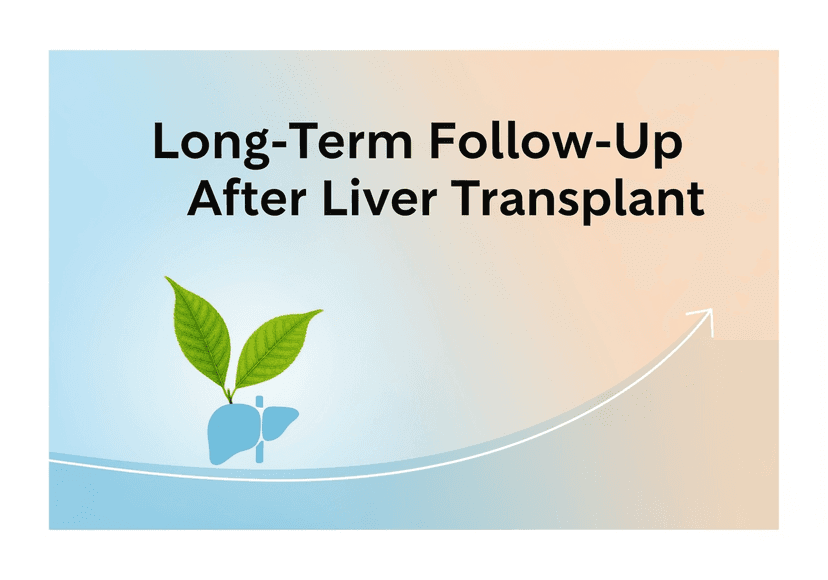
Choosing the Right Surgeon for Kidney Transplant
30 Oct, 2025
 Healthtrip
Healthtrip- Why Choosing the Right Surgeon Matters for Kidney Transplant
- Where to Find Qualified Kidney Transplant Surgeons
- Who is Considered a Good Kidney Transplant Surgeon?
- How to Evaluate a Surgeon's Experience and Expertise
- Examples of Hospitals with Reputable Transplant Programs
- Essential Questions to Ask Your Potential Surgeon
- Conclusion
Understanding Kidney Transplantation
Kidney transplantation involves replacing a diseased or damaged kidney with a healthy one from a donor, offering improved quality of life and longevity compared to dialysis. The procedure itself is a complex undertaking, demanding precision, skill, and a deep understanding of surgical techniques and patient management. Finding a surgeon experienced in both deceased donor and living donor transplants is important. Experienced surgeons can handle complex cases, minimize risks, and optimize outcomes. Furthermore, your surgeon’s expertise extends beyond the operating room to include pre-operative assessment, post-operative care, and long-term monitoring. Facilities like Fortis Hospital, Noida and NMC Specialty Hospital, Abu Dhabi offer comprehensive care packages, but the surgeon is your quarterback, coordinating your care, managing complications, and ensuring a smooth transition back to health. Consider this: While technology plays a vital role, it's the surgeon's expertise that truly steers the ship.
Most popular procedures in India
Factors to Consider When Choosing a Surgeon
Surgical Experience and Expertise
Experience truly matters when it comes to kidney transplantation. Look for a surgeon who performs a high volume of kidney transplants annually, indicating a deeper understanding of the nuances and potential challenges of the procedure. Inquire about their success rates and complication rates, keeping in mind that transparency is a hallmark of a trustworthy medical professional. A surgeon's expertise also extends to managing complex cases such as patients with previous transplants, multiple comorbidities, or anatomical variations. Beyond the numbers, consider the surgeon's specific training and qualifications, such as fellowship training in transplant surgery. Hospitals like Memorial Sisli Hospital and Vejthani Hospital boast teams of highly qualified and experienced surgeons who specialize in kidney transplantation, and they emphasize a patient-centric approach to care, ensuring your comfort and well-being throughout your transplant journey. After all, you wouldn’t want someone learning on the job, would you?
Wellness Treatments
Give yourself the time to relax
Lowest Prices Guaranteed!

Lowest Prices Guaranteed!
Hospital Affiliations and Resources
A surgeon's affiliation with a reputable hospital is a critical consideration. Hospitals like Saudi German Hospital Cairo, Egypt and Quironsalud Hospital Murcia offer state-of-the-art facilities, advanced technology, and a multidisciplinary team of specialists, including nephrologists, immunologists, and infectious disease experts, all essential for comprehensive transplant care. These hospitals adhere to strict quality standards and protocols, ensuring patient safety and optimal outcomes. The availability of advanced imaging techniques, such as CT scans and MRIs, and access to specialized laboratories for tissue typing and crossmatching are also key factors. Support services such as transplant coordinators, social workers, and dietitians contribute to a holistic approach to care, addressing the physical, emotional, and social needs of transplant recipients. Ultimately, the hospital environment plays a crucial role in your recovery and long-term success post-transplant, so consider it an extension of your surgeon's expertise.
Communication and Bedside Manner
Open communication builds trust and ensures that you feel heard and understood throughout the transplant process. A good surgeon will take the time to explain the procedure in detail, discuss potential risks and benefits, and answer your questions patiently and thoroughly. Look for a surgeon who is empathetic, compassionate, and genuinely cares about your well-being. A positive doctor-patient relationship can significantly reduce anxiety and improve your overall experience. The ability to communicate effectively, both verbally and in writing, is also important, especially when coordinating care with other healthcare providers. It's important that you feel comfortable discussing your concerns and preferences with your surgeon, knowing that they will listen and respect your opinions. So listen to your gut, because sometimes, it knows best! Healthtrip understands the importance of this human connection and can assist you in finding a surgeon with whom you feel truly comfortable and confident, such as at BNH Hospital and Thumbay Hospital.
Preparing for Your Consultation
Before your consultation, gather all relevant medical records, including your medical history, medications, and previous test results. Prepare a list of questions to ask your surgeon about their experience, success rates, and the transplant process. Be ready to discuss your expectations, concerns, and goals for the transplant. This is your opportunity to assess their communication style, bedside manner, and overall approach to patient care. Ask about their plan for managing potential complications and their long-term follow-up care. Don't hesitate to seek a second opinion if you're unsure about any aspect of the process, Healthtrip is here to facilitate connections with multiple specialists to ensure you have all of the information to make the right choice. Remember, this is your health journey, and you have the right to make informed decisions that align with your values and preferences. By being proactive and prepared, you can maximize the value of your consultation and set yourself up for a successful transplant experience.
Questions to Ask Potential Surgeons
During your consultation, don't be shy about asking detailed questions. Inquire about the surgeon's experience with different types of transplant procedures, such as laparoscopic or robotic-assisted techniques. Ask about their approach to immunosuppression management and their experience with managing rejection episodes. It’s also important to understand what kind of follow-up care you can expect after the transplant. Will you be seeing the surgeon regularly or will your primary care physician take over? Get a clear understanding of the surgeon's role in your ongoing care. Discuss the surgeon's philosophy on patient selection and their criteria for determining transplant candidacy. Ask about their involvement in research and innovation in the field of transplantation, which can indicate a commitment to staying at the forefront of medical advancements. By asking these questions, you can gain valuable insights into the surgeon's expertise, approach to care, and commitment to patient outcomes. Remember, no question is too small or insignificant when it comes to your health and well-being. Healthtrip recommends consulting with specialists at Yanhee International Hospital or LIV Hospital, Istanbul.
Healthtrip’s Role in Your Journey
Healthtrip acts as your dedicated guide throughout the kidney transplant process, providing personalized support and resources to help you navigate the complexities of medical travel. We connect you with top-tier surgeons and hospitals worldwide, facilitating consultations, arranging travel logistics, and ensuring seamless communication every step of the way. Our team understands the unique challenges of seeking medical care abroad and is committed to providing culturally sensitive and language-appropriate support. We also assist with financial planning, insurance coverage, and post-transplant care coordination. Healthtrip's goal is to alleviate the burden of logistical and administrative tasks, allowing you to focus on your health and recovery. We believe that everyone deserves access to high-quality medical care, regardless of their location or circumstances. Let Healthtrip be your trusted partner in your journey to a healthier future. Consider exploring options at the Jiménez Díaz Foundation University Hospital and Singapore General Hospital.
Why Choosing the Right Surgeon Matters for Kidney Transplant
Embarking on a kidney transplant journey is a significant life event, filled with hope and anticipation for a healthier future. However, navigating this path requires careful consideration, and one of the most crucial decisions you'll make is selecting the right surgeon. Think of it like building a house; the surgeon is the architect and the construction crew all rolled into one. They're not just cutting and sewing; they're orchestrating a complex and delicate procedure that will directly impact your long-term well-being. Choosing the wrong surgeon can, unfortunately, lead to a host of complications, from increased risk of rejection to surgical errors requiring further interventions. On the flip side, a skilled and experienced surgeon brings a wealth of knowledge, technical expertise, and a compassionate approach, significantly enhancing your chances of a successful transplant and a smoother recovery. The right surgeon will not only perform the operation with precision but also guide you through the entire process, answering your questions, addressing your concerns, and providing the support you need to feel confident and prepared. In essence, selecting the right surgeon is an investment in your health and peace of mind, laying the foundation for a brighter, healthier future after your kidney transplant. Healthtrip understands the importance of this decision and is here to help you navigate the process.
Where to Find Qualified Kidney Transplant Surgeons
Finding a qualified kidney transplant surgeon might feel like searching for a needle in a haystack, but fear not! Several credible avenues can lead you to the right professional. Start with reputable transplant centers like Fortis Memorial Research Institute, Gurgaon and Max Healthcare Saket, known for their specialized transplant programs and experienced medical teams. These centers typically have dedicated transplant teams comprising surgeons, nephrologists, and nurses who work collaboratively to provide comprehensive care. Another valuable resource is your nephrologist or primary care physician. They can offer recommendations based on their knowledge of your medical history and their professional network. Don't hesitate to ask them for referrals to transplant surgeons they trust and respect. Online directories and professional organizations, such as the American Society of Transplantation, also provide listings of qualified transplant surgeons. These directories often include information about the surgeon's credentials, experience, and areas of expertise. Healthtrip can be an invaluable partner in this search, offering a curated list of verified surgeons and connecting you with leading transplant centers worldwide. Remember, thorough research is key. Verify the surgeon's credentials, check their board certifications, and read patient reviews to get a holistic understanding of their expertise and patient care approach. Take your time, do your homework, and trust your instincts – you're on your way to finding the right surgeon for your kidney transplant.
Who is Considered a Good Kidney Transplant Surgeon?
Defining a "good" kidney transplant surgeon goes beyond just technical skill; it encompasses a blend of expertise, experience, and a genuine commitment to patient care. A top-notch transplant surgeon possesses a wealth of knowledge about kidney disease, transplantation procedures, and immunosuppression management. They've likely spent years honing their surgical skills through extensive training and hands-on experience, performing numerous transplant operations with successful outcomes. Look for surgeons who are board-certified in transplant surgery and have a proven track record of positive patient results. But technical prowess is only part of the equation. A truly good surgeon is also an excellent communicator, taking the time to explain the procedure in clear, understandable terms, answering your questions thoroughly, and addressing your concerns with empathy and patience. They'll involve you in the decision-making process, ensuring you feel informed and empowered every step of the way. Furthermore, a good surgeon is a team player, collaborating effectively with other members of the transplant team, including nephrologists, nurses, and social workers, to provide comprehensive and coordinated care. They're also committed to staying up-to-date with the latest advancements in transplant medicine, continuously learning and refining their skills to provide the best possible outcomes for their patients. Ultimately, a good kidney transplant surgeon is someone you trust implicitly, someone who not only has the technical expertise to perform the operation successfully but also the compassion and dedication to guide you through the entire transplant journey. Consider highly reputable hospitals and transplant centers such as Mount Elizabeth Hospital, Singapore and Singapore General Hospital, known for their experienced and skilled transplant teams.
Also Read:
How to Evaluate a Surgeon's Experience and Expertise
Choosing a kidney transplant surgeon is a pivotal decision, and naturally, you want the best possible care. But how do you even begin to assess someone's qualifications in such a specialized field? It’s more than just glancing at a framed diploma on the wall. You need to delve into the nitty-gritty: their experience, the outcomes they've achieved, and their commitment to ongoing learning. A good starting point is to check their board certifications. Are they certified in transplant surgery by a reputable board? This demonstrates they've met specific standards of education, training, and competence. Beyond certification, explore their years in practice. How many kidney transplants have they performed? Experience matters, especially when dealing with the complexities of transplantation. The more procedures a surgeon has under their belt, the better equipped they are to handle unforeseen challenges and ensure a successful outcome. Don't hesitate to ask about their success rates, graft survival rates, and patient survival rates. While no surgeon can guarantee perfection, these statistics provide valuable insights into their performance and the overall quality of the transplant program. Also, consider the surgeon's involvement in research and publications. Are they actively contributing to the field through research, publications, or presentations at medical conferences? This indicates a commitment to staying abreast of the latest advancements and best practices in kidney transplantation. Remember, knowledge is always evolving, and you want a surgeon who is dedicated to continuous improvement.
Moreover, it's okay to inquire about the surgeon’s approach to patient care. Do they prioritize open communication and shared decision-making? Do they take the time to explain the procedure thoroughly and answer all your questions? A good surgeon will not only possess technical expertise but also demonstrate empathy, compassion, and a genuine concern for your well-being. Consider factors like the surgeon's communication style, their willingness to involve you in treatment decisions, and the level of support they provide throughout the entire transplant journey. Evaluating a surgeon's experience and expertise requires a multi-faceted approach. By carefully considering their credentials, experience, outcomes, research involvement, and patient care philosophy, you can make a confident and informed decision about who will be entrusted with your kidney transplant.
Also Read:
Examples of Hospitals with Reputable Transplant Programs
When it comes to kidney transplants, choosing the right hospital is just as crucial as selecting the right surgeon. A reputable transplant program boasts a multidisciplinary team of experts, state-of-the-art facilities, and a commitment to providing comprehensive care throughout the entire transplant process. While Healthtrip can help you explore options globally, let's highlight a few examples of hospitals known for their excellence in transplant services. For those seeking options in India, Fortis Hospital, Noida, Fortis Memorial Research Institute, Gurgaon, and Max Healthcare Saket are highly regarded. These hospitals offer advanced transplant technologies and have experienced transplant teams. Similarly, Memorial Sisli Hospital and LIV Hospital, Istanbul in Turkey have established themselves as leading centers for organ transplantation, attracting patients from around the globe. They are known for their patient-centric approach and commitment to innovation. In Thailand, Bangkok Hospital and Vejthani Hospital are known for their comprehensive transplant programs, attracting international patients with their modern facilities and experienced medical teams offering specialized care. In Spain, Quironsalud Hospital Murcia and Jiménez Díaz Foundation University Hospital are reputable choices for kidney transplants, known for their advanced surgical techniques and patient care. In Singapore, Singapore General Hospital and Mount Elizabeth Hospital are renowned for their high success rates and comprehensive post-transplant care.
When researching hospitals, it's important to look beyond just rankings and accolades. Consider factors such as the hospital's transplant volume, graft survival rates, patient satisfaction scores, and the availability of support services like transplant coordinators, nutritionists, and social workers. A comprehensive transplant program will provide a holistic approach to care, addressing not only the medical aspects of transplantation but also the emotional, social, and practical needs of patients and their families. Furthermore, check if the hospital has experience treating international patients, as they would then be more equipped to handle unique challenges of medical travel.
Also Read:
Essential Questions to Ask Your Potential Surgeon
Meeting a potential kidney transplant surgeon can feel like a high-stakes interview. It’s your health, your future, and you deserve to be fully informed. Don't be shy about asking questions! It’s your right, and a good surgeon will welcome your inquiries. Start with the basics, like, "What is your experience with kidney transplants?" and "How many transplants have you performed?". Dig deeper by asking about their success rates and graft survival rates specifically. Understanding the surgeon's track record is crucial for gauging their expertise. You might also ask, "What are the potential risks and complications associated with kidney transplantation?". Transparency is key. A surgeon should openly discuss potential challenges and how they manage them. Get details about the procedure itself by asking, "Can you describe the surgical process?". Knowing what to expect can ease anxiety. Also, ask about the post-transplant care plan by inquiring, "What will my recovery be like, and what follow-up care will I need?". Being prepared for the recovery process is vital.
Don’t forget to ask about the organ donation process by asking, "How do you evaluate the suitability of a donor kidney?". Understanding how they ensure the compatibility and quality of the donor organ is essential. Think about compatibility by asking, “What are the chances of rejection, and how is it managed?”. Knowing how they handle potential rejection is crucial for long-term success. Address financial concerns by saying, “What are the estimated costs associated with the transplant, including pre- and post-operative care?”. Financial transparency helps you plan accordingly and Healthtrip can assist you with further information. Finally, consider the team dynamic by inquiring, "Who will be part of my transplant team, and what are their roles?". A multidisciplinary team ensures comprehensive care.
Also Read:
Conclusion
Embarking on a kidney transplant journey is a significant decision, filled with both hope and uncertainty. Finding the right surgeon is paramount to a successful outcome. By understanding the importance of experience, knowing where to look for qualified professionals, carefully evaluating their expertise, and asking the right questions, you can empower yourself to make an informed choice. Remember, your health and well-being are the top priorities. Healthtrip is here to assist you in navigating the complexities of medical travel and connecting you with world-class healthcare providers. We understand that every patient's journey is unique, and we are committed to providing personalized support and guidance every step of the way. From finding the right hospital and surgeon to arranging travel logistics and coordinating post-operative care, we are here to help you achieve the best possible outcome. Take your time, do your research, and trust your instincts. With the right surgeon by your side and the support of a dedicated team, you can face your kidney transplant with confidence and optimism, paving the way for a healthier and brighter future.
Related Blogs

Top Rated Hospitals for Plastic Surgery in India
Detailed insights into plastic surgery – doctors, hospitals, technology, recovery,

Long-Term Follow-Up After Liver Transplant
Detailed insights into liver transplant – doctors, hospitals, technology, recovery,

Healthtrip’s Transparency in Liver Transplant Pricing and Packages
Detailed insights into liver transplant – doctors, hospitals, technology, recovery,

Frequently Asked Questions About Liver Transplant
Detailed insights into liver transplant – doctors, hospitals, technology, recovery,

Advanced Robotic Technology Used in Liver Transplant
Detailed insights into liver transplant – doctors, hospitals, technology, recovery,

How Healthtrip Supports Foreign Patients for Liver Transplant in India
Detailed insights into liver transplant – doctors, hospitals, technology, recovery,










